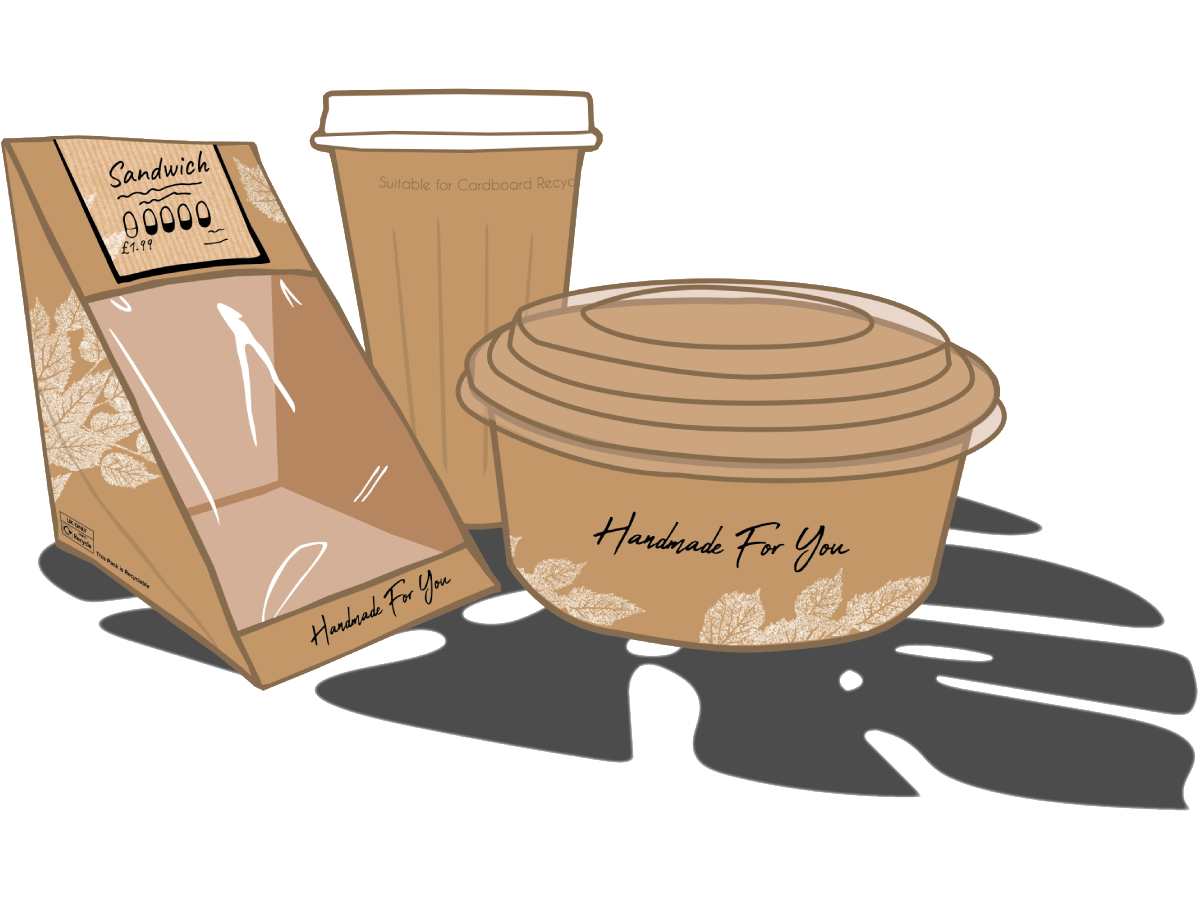Why Choose Our Recyclable & Compostable Food Packaging
The trouble with ‘eco’ packaging, the materials we use, our certified recyclable and compostable products + how to dispose of them.

We Need To Talk About 'Eco' Packaging
The term 'eco packaging' gets used a lot and yet, without clearly stating how, it is meaningless. At Planglow, we want to be completely transparent about our products and services and never to greenwash:
- Throughout our website we have clearly signposted which of our products have been certified either home compostable (to NF T51-800:2015) and / or industrially compostable (to EN 13432 standards), as well as those that meet ORPL standards for recycling.
- Many of our products are certified for disposal via more than one method
- We are currently seeking certification for our non-certified products
- All of our packaging products are made from plant-based materials
- We believe this makes them more sustainable than oil-based plastic products as we use materials sourced from renewable plantations and forests
- Our certified compostable packaging products are suitable for composting waste collection services through Zap Waste Management
- Our recyclable packaging may be recycled in the appropriate waste stream
- All of our packaging is suitable for on-site closed-loop waste disposal using a Bio Processor from PRM Waste Systems

What Is Your Packaging Made Of?
As our products love to tell you (it's printed on every pack), they are made from plant-based materials which can be divided into three camps:
PLA - polylactic acid (to give it its full name) is a biobased plastic derived from corn starch. We use PLA for the windows of our grab and go packaging, to make our clear bags and some of our lids, as well as to line some of our cups and pots.
Wood Pulp - paper / card + our bio laminate cellulose film are made from wood pulp. Cellulose is found in the walls of plant cells (in this case trees) giving the plant its rigidity and strength.
Aqueous Coating - a water-based material added to our cups and pots to allow these products to retain liquids, it is certified home and industrially compostable.
Check out the product descriptions in our shop for details.

What Makes Your Food Packaging More Sustainable? & Other FAQs
Ever wondered what can make food packaging unsuitable for recycling? What happens to compostable packaging in landfill? Or why we don't say our packaging is 'biodegradable' any more? You’ll find answers to these questions and many more in our handy blog post 'Composting 101' which covers the lot. Alternatively, please do get in contact with any queries as we’d be more than happy to help.

 Planglow Account Login
Planglow Account Login













